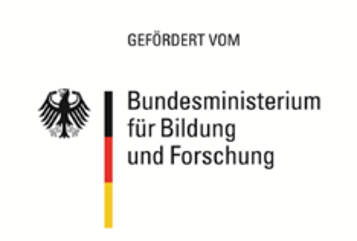Literatur zur Krisenkommunikation
Communicating COVID-19 against the backdrop of conspiracy ideologies: HOW PUBLIC FIGURES DISCUSS THE MATTER ON FACEBOOK AND TELEGRAM
Beschreibung
Social life has changed a lot in the course of the COVID-19 pandemic. The effects of the virus influenced a wide variety of aspects of everyday life. As a matter of fact, the Internet with its alternative media sources has a substantial influence on the spread of conspiracy ideologies and right-wing populist perspectives and ideas alike. Especially in the context of social networks, diverse content on these topics is shared and consumed by a vast audience. Important players on social media are news networks and celebrities, because of their great impact on the opinions of their followers. The study at hand examines the extent to which right-wing populist worldviews can be identified in this context, as well as their connection with conspiracy ideology in statements made by right-wing party AfD and prominent personalities on the social networks Facebook and Telegram. Using a quantitative content analysis, more than 1700 social media posts with content related to COVID-19 were analysed. The research period was set from March 11 to December 31, 2020, and refers to event-related datasets. Amongst other findings, the analysis showed that Telegram is the main platform for conspiracy ideologies: Posts from individuals who are devoted to conspiracy ideologies and the AfD display their critique towards scientific facts concerning COVID-19, especially on Telegram. Furthermore, Telegram may even be considered as the exclusive platform for conspiracy ideologies used by these individuals
Erschienen
2021
Themen
Krisenwahrnehmung
Krisenkommunikation
Krisenkommunikation
Herausgeber*innen
Disinformation Research Lab, University of Passau
Autor*innen
Hohlfeld, Ralf
Bauerfeind, Franziska
Braglia, Ilenia
Butt, Aqib
Dietz, Anna-Lena
Drexel, Denise
Fedlmeier, Julia
Fischer, Lana
Gandl, Vanessa
Glaser, Felia
Haberzettel, Eva
Helling, Teresa
Käsbauer, Isabel
Kast, Matthias
Krieger, Anja
Lächner, Anja
Malkanova, Adriana
Raab, Marie-Kristin
Rech, Anastasia
Scharnberger, Bianca
Schmid, Hannah
Schmidt-Ott, Malin
Triebelhorn, Christine
Vogl, Franziska
Weymar, Pia
Bauerfeind, Franziska
Braglia, Ilenia
Butt, Aqib
Dietz, Anna-Lena
Drexel, Denise
Fedlmeier, Julia
Fischer, Lana
Gandl, Vanessa
Glaser, Felia
Haberzettel, Eva
Helling, Teresa
Käsbauer, Isabel
Kast, Matthias
Krieger, Anja
Lächner, Anja
Malkanova, Adriana
Raab, Marie-Kristin
Rech, Anastasia
Scharnberger, Bianca
Schmid, Hannah
Schmidt-Ott, Malin
Triebelhorn, Christine
Vogl, Franziska
Weymar, Pia
DOI
10.13140/RG.2.2.36822.78406
